Unit 1 A land of diversity language study
文档属性
| 名称 | Unit 1 A land of diversity language study |

|
|
| 格式 | rar | ||
| 文件大小 | 597.3KB | ||
| 资源类型 | 教案 | ||
| 版本资源 | 人教版(新课程标准) | ||
| 科目 | 英语 | ||
| 更新时间 | 2010-08-10 00:00:00 | ||
图片预览

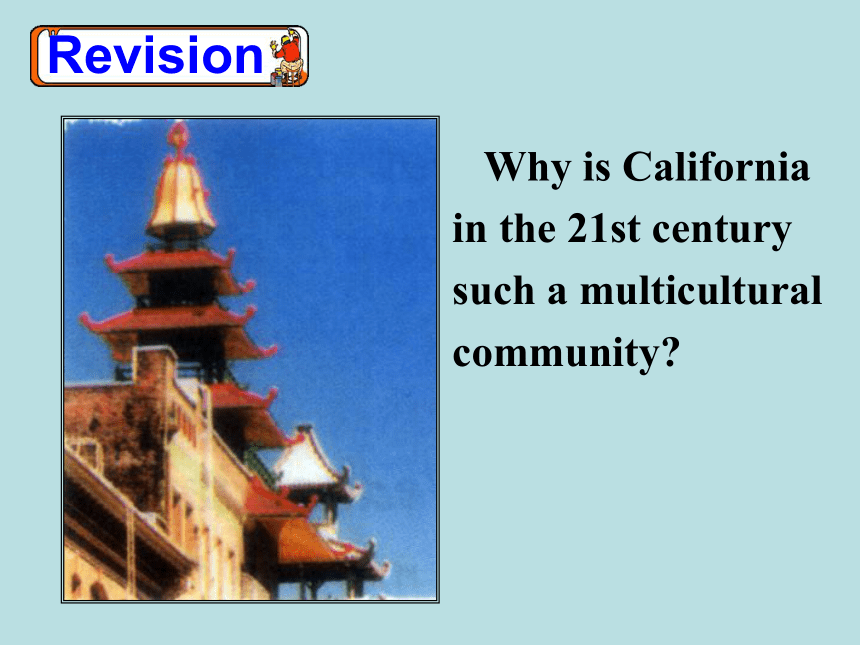
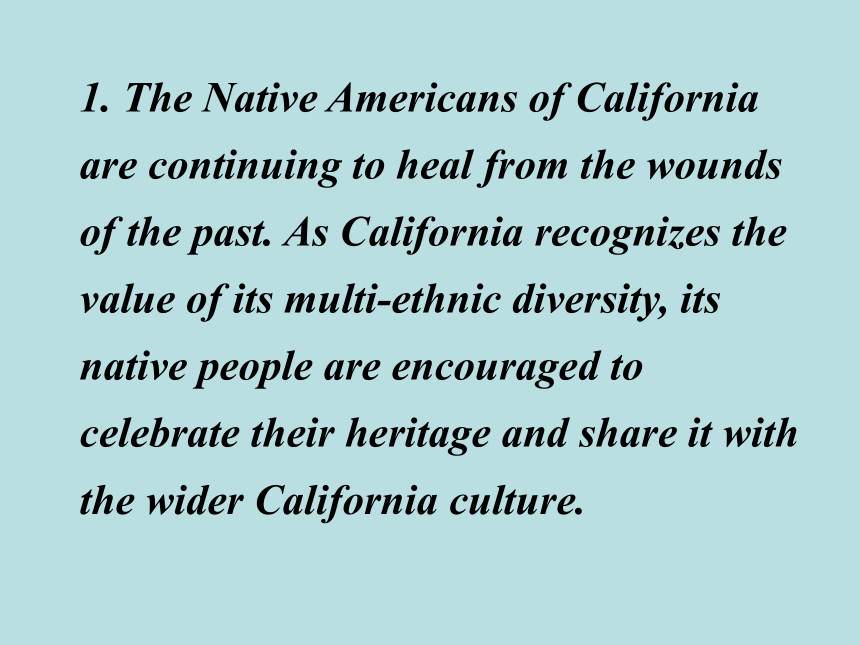
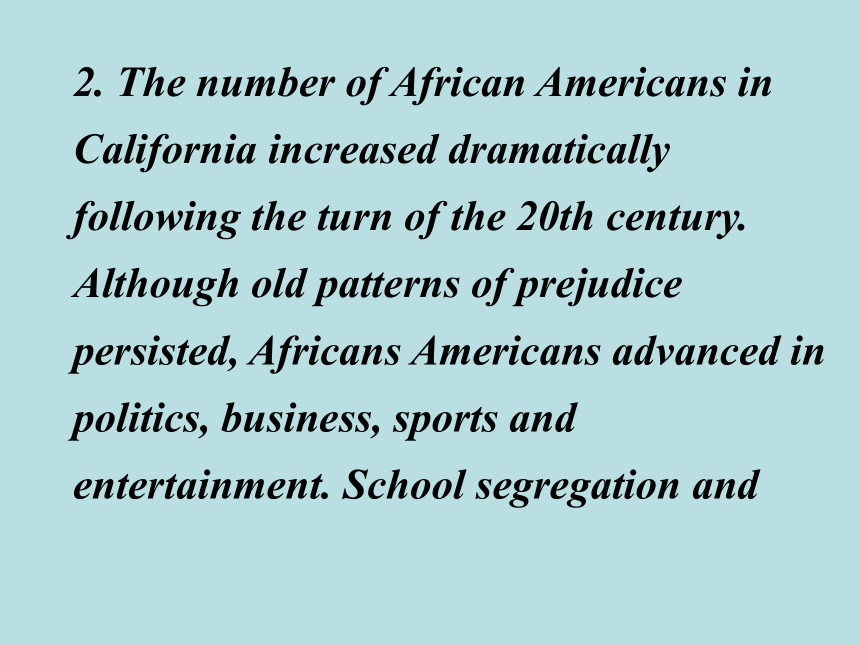
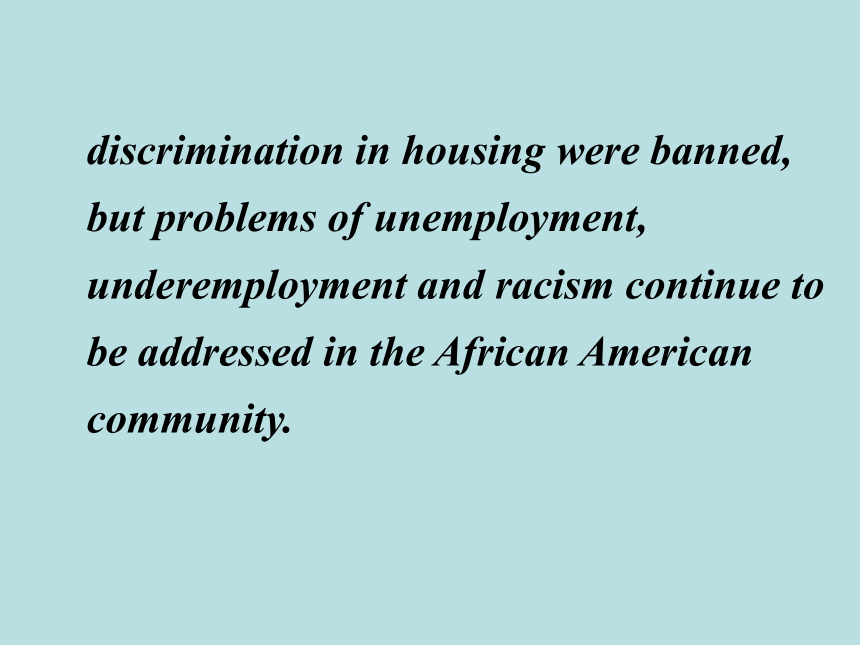
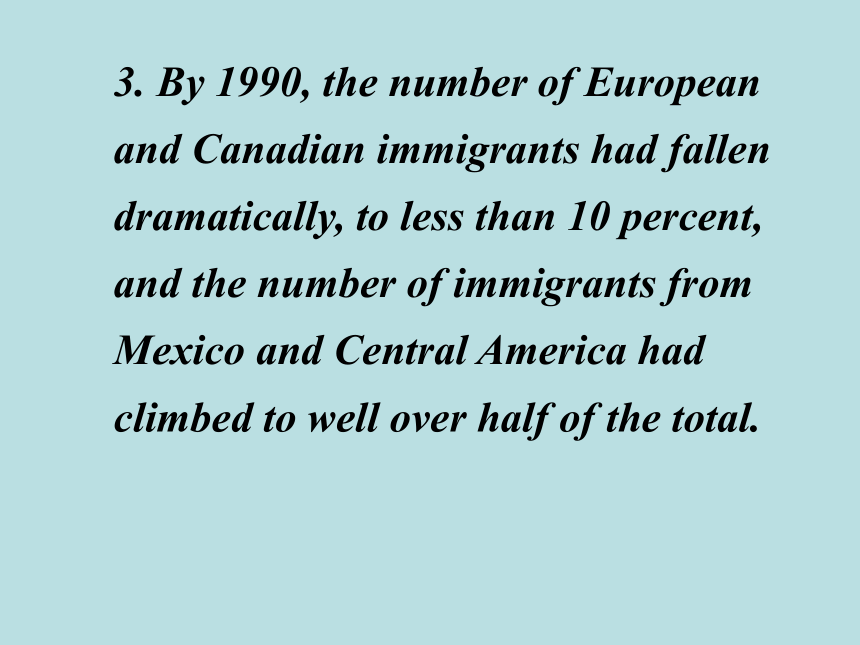
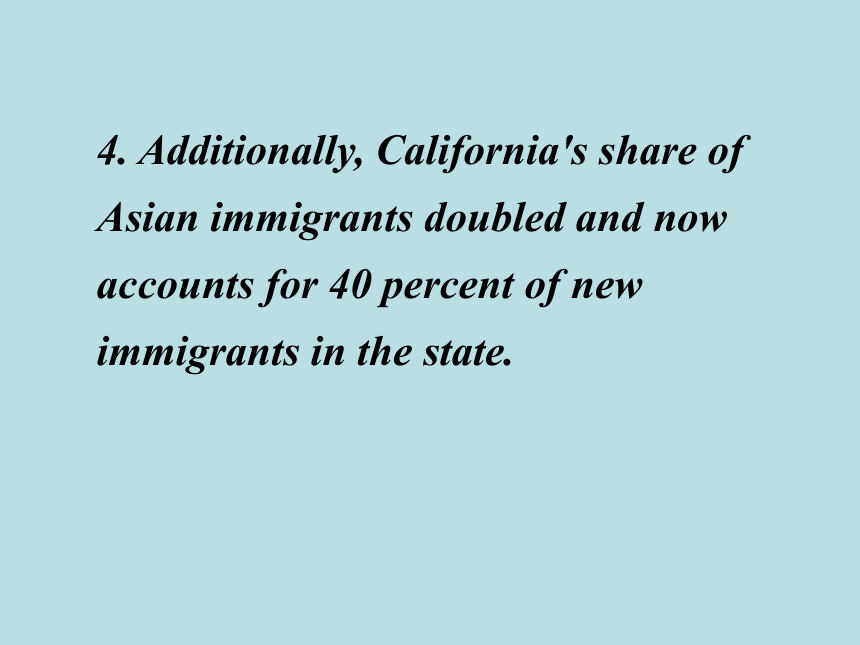
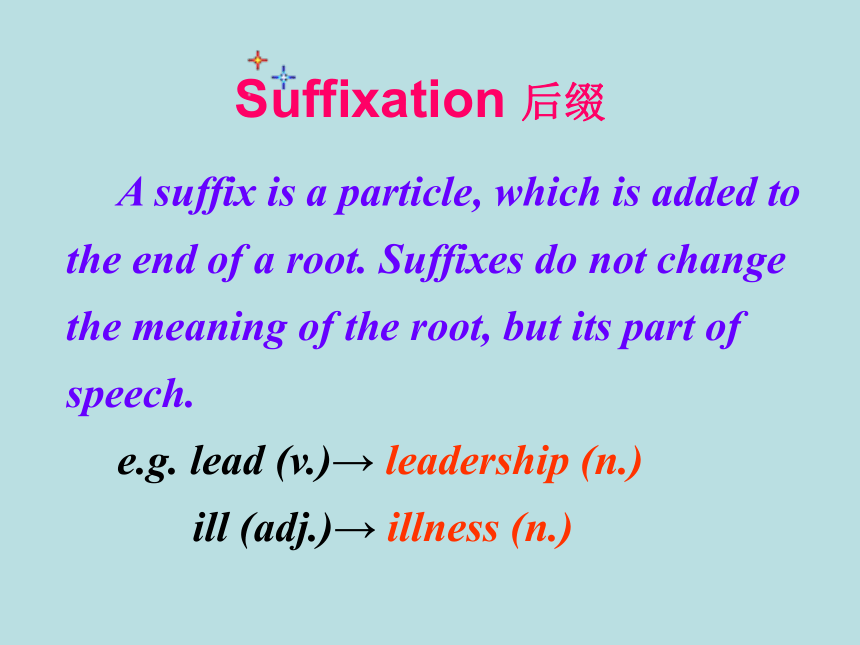
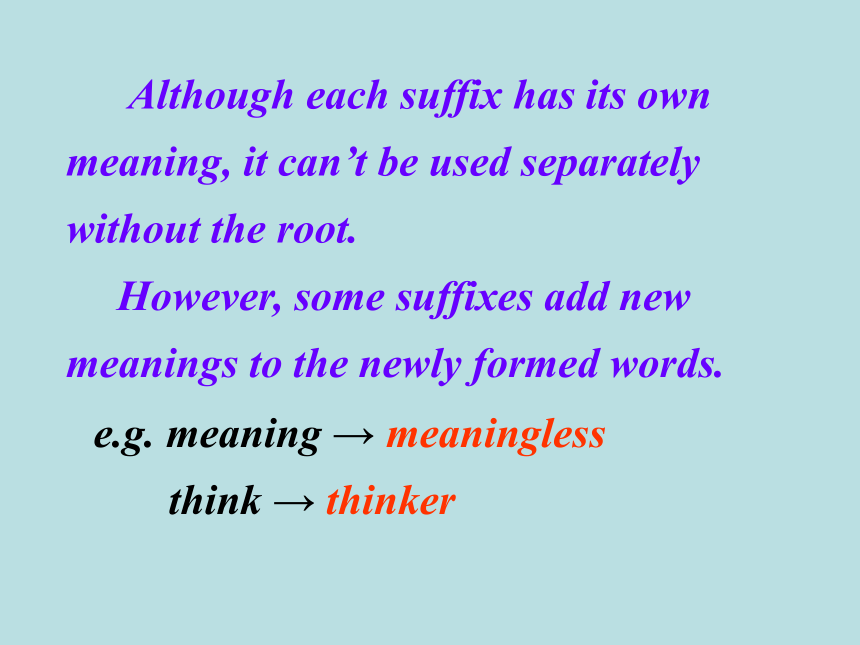
文档简介
课件22张PPT。Language StudyRevision Why is California in the 21st century such a multicultural community?1. The Native Americans of California are continuing to heal from the wounds of the past. As California recognizes the value of its multi-ethnic diversity, its native people are encouraged to celebrate their heritage and share it with the wider California culture.2. The number of African Americans in California increased dramatically following the turn of the 20th century. Although old patterns of prejudice persisted, Africans Americans advanced in politics, business, sports and entertainment. School segregation anddiscrimination in housing were banned, but problems of unemployment, underemployment and racism continue to be addressed in the African American community.3. By 1990, the number of European and Canadian immigrants had fallen dramatically, to less than 10 percent, and the number of immigrants from Mexico and Central America had climbed to well over half of the total. 4. Additionally, California's share of Asian immigrants doubled and now accounts for 40 percent of new immigrants in the state. Suffixation 后缀 A suffix is a particle, which is added to the end of a root. Suffixes do not change the meaning of the root, but its part of speech.
e.g. lead (v.)→ leadership (n.)
ill (adj.)→ illness (n.) Although each suffix has its own meaning, it can’t be used separately without the root.
However, some suffixes add new meanings to the newly formed words.e.g. meaning → meaningless
think → thinker1. Suffixes used as a noun signifier 2. Suffixes used as an adjective signifier 3. Suffixes used as a verb signifier n. a kind of system about slavesn. people in Spain or a native language spoken in Spain adj. of Spain; of the people or languageWord study Let’s review the useful words and expressions in the passageadj. relating to all Christians or the whole Christian Church;n. member of the Roman Catholic Churchv. make or prepare sth. by putting substances , etc together;be able to be combined; make a suitable combinationn. mixing or being mixed; combination of two or more substancesn. citizenship of one’s countryn. the greater number or part; mostn. the greater number or
part; mostn. person who has come to
love permanently in a
foreign countryn. portion of every hundredmake a livingnumerous, abundant, a
great number ofHomework 1. Ask the students to finish Activities
1-3 on page 48 in the workbook.
2. Ask the students to prepare for the
grammar about the Noun Clauses.
e.g. lead (v.)→ leadership (n.)
ill (adj.)→ illness (n.) Although each suffix has its own meaning, it can’t be used separately without the root.
However, some suffixes add new meanings to the newly formed words.e.g. meaning → meaningless
think → thinker1. Suffixes used as a noun signifier 2. Suffixes used as an adjective signifier 3. Suffixes used as a verb signifier n. a kind of system about slavesn. people in Spain or a native language spoken in Spain adj. of Spain; of the people or languageWord study Let’s review the useful words and expressions in the passageadj. relating to all Christians or the whole Christian Church;n. member of the Roman Catholic Churchv. make or prepare sth. by putting substances , etc together;be able to be combined; make a suitable combinationn. mixing or being mixed; combination of two or more substancesn. citizenship of one’s countryn. the greater number or part; mostn. the greater number or
part; mostn. person who has come to
love permanently in a
foreign countryn. portion of every hundredmake a livingnumerous, abundant, a
great number ofHomework 1. Ask the students to finish Activities
1-3 on page 48 in the workbook.
2. Ask the students to prepare for the
grammar about the Noun Clauses.
